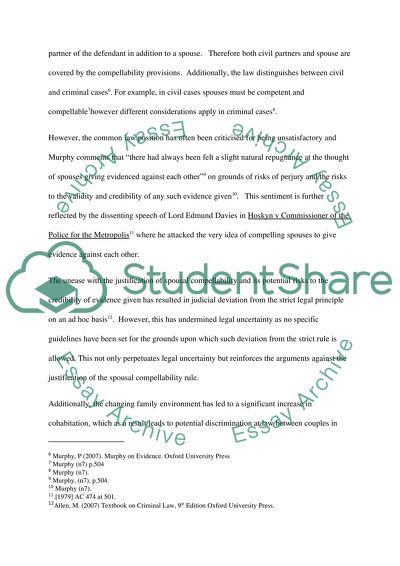Cite this document
(“Critically consider whether the current law on spousal compellability Essay”, n.d.)
Retrieved from https://studentshare.org/miscellaneous/1573014-critically-consider-whether-the-current-law-on-spousal-compellability-is-justifiable
Retrieved from https://studentshare.org/miscellaneous/1573014-critically-consider-whether-the-current-law-on-spousal-compellability-is-justifiable
(Critically Consider Whether the Current Law on Spousal Compellability Essay)
https://studentshare.org/miscellaneous/1573014-critically-consider-whether-the-current-law-on-spousal-compellability-is-justifiable.
https://studentshare.org/miscellaneous/1573014-critically-consider-whether-the-current-law-on-spousal-compellability-is-justifiable.
“Critically Consider Whether the Current Law on Spousal Compellability Essay”, n.d. https://studentshare.org/miscellaneous/1573014-critically-consider-whether-the-current-law-on-spousal-compellability-is-justifiable.


